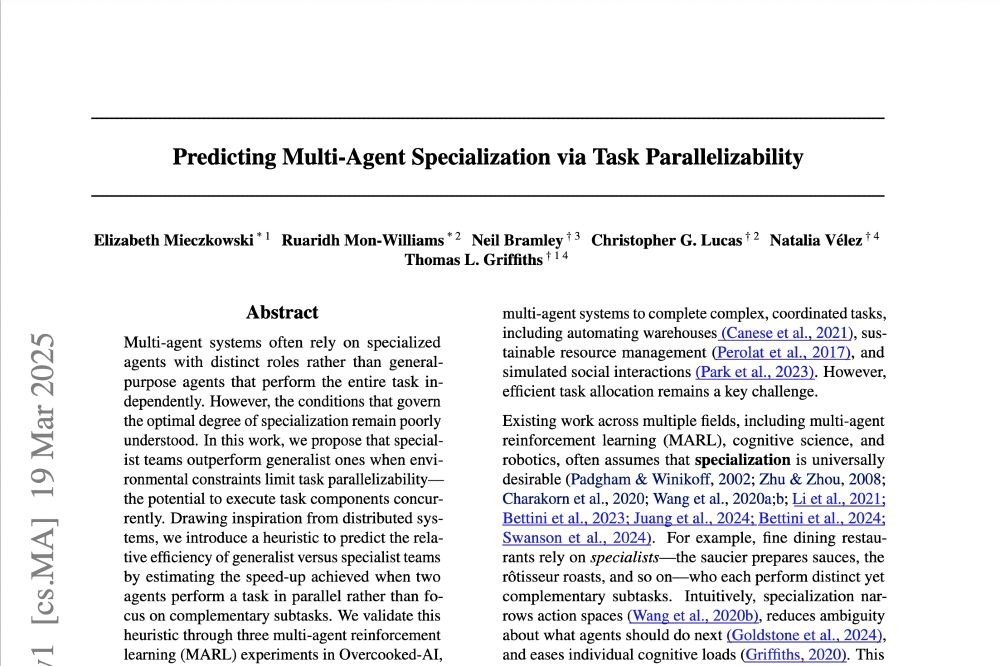Griffiths Computational Cognitive Science Lab
Tom Griffiths' Computational Cognitive Science Lab at Princeton. Studying the computational problems human minds have to solve.
- New preprint shows that ideas from distributed systems can be used to predict when agents will adopt specialized strategies when working together to perform a task
- We often assume that specialized roles improve performance in multi-agent systems, but when does specialization emerge based on a given task and environment? 🧵👇 ⭐️ New preprint w/ Ruaridh Mon-Williams, @neilbramley.bsky.social, Chris Lucas, @natvelali.bsky.social & @cocoscilab.bsky.social
- The new AI Lab at Princeton has positions for AI Postdoctoral Research Fellows for three research initiatives: AI for Accelerating Invention, Natural and Artificial Minds, and Princeton Language and Intelligence. Deadline is 12/31. More information here: ai.princeton.edu/ai-lab/emplo...
- (1/5) Very excited to announce the publication of Bayesian Models of Cognition: Reverse Engineering the Mind. More than a decade in the making, it's a big (600+ pages) beautiful book covering both the basics and recent work: mitpress.mit.edu/978026204941...
- We are advertising a new postdoctoral position in computational cognitive science, with specific interest in applications of large language models in cognitive science and use of Bayesian methods and metalearning to understand human cognition and AI systems. www.princeton.edu/acad-positio...
- First post! Does the success of deep neural networks in creating AI systems mean Bayesian models are no longer relevant? Our new paper argues the opposite: these approaches are complementary, creating new opportunities to use Bayes to understand intelligent machines arxiv.org/abs/2311.10206

